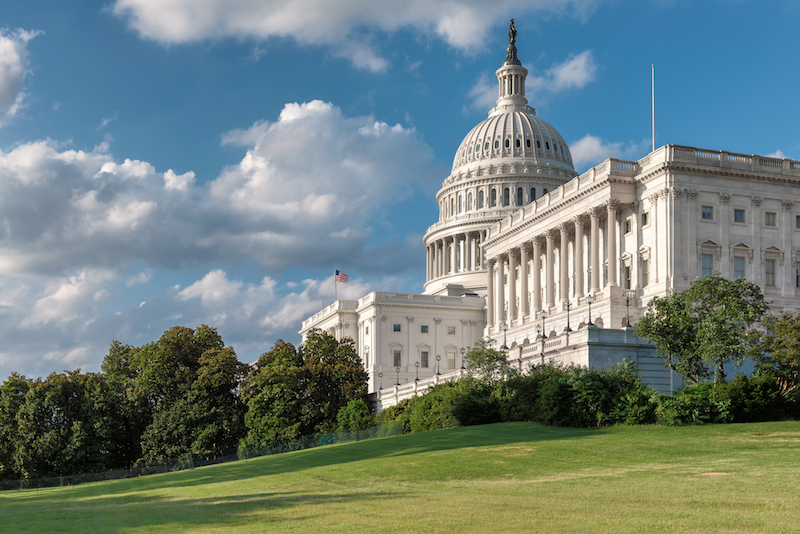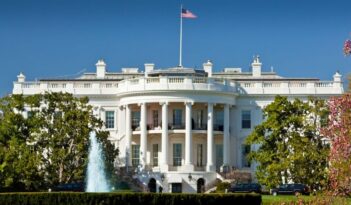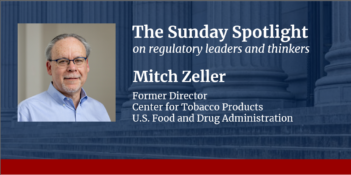
Limiting judicial deference to agencies would strengthen environmental policy and democratic accountability.
The bedrock of modern administrative law—the deference afforded administrative agencies under Chevron v. Natural Resources Defense Council—appears to be crumbling. As Jonathan H. Adler recently wrote, federal agencies sought Chevron deference in five cases during the U.S. Supreme Court’s last term, and the Court rejected deference in every one. In one of his final opinions, Justice Anthony Kennedy suggested that the time had come for the Court to reconsider “reflexive deference” to agencies, which he found “troubling.”
The continued vitality of Chevron deference is cast into further doubt by President Donald J. Trump’s nomination of Judge Brett Kavanaugh for Justice Kennedy’s seat. Although Judge Kavanaugh has not publicly called for it to be overruled, he has written about the impropriety of deferring on so-called major questions—those with significant economic, social, or political consequences—and courts’ over-indulgent tendency to find statutes ambiguous and, therefore, deference appropriate.
Whether Chevron is overruled or its domain is restricted, a happy consequence of the change will be to shift more policy responsibility back to Congress. Elected representatives have been all too happy to stay out of the business of governing, punting tough decisions to the vicissitudes of presidential and agency politics. But if agencies were no longer able to adopt novel and aggressive interpretations of existing statutes, more of this responsibility would shift back to Congress.
The tendency of agencies to substitute creative interpretations for congressional action has been perhaps most pronounced in environmental law, fittingly the subject of the Chevron decision itself, in which the Court deferred to an agency interpretation that favored the oil company against an environmental group.
Major federal environmental statutes have long shown their age. Despite new challenges, most of these laws have not been significantly updated since bell bottoms were cool. Consequently, the U.S. Environmental Protection Agency (EPA) too often crafts environmental regulations from statutes poorly designed for the cause of the day. Because environmental law depends so much on executive discretion, environmental regulation has frequently oscillated with changes in administrations, often denying the regulations the stability required to achieve their intended results.
In the short term, the impact of Chevron on the environment has been mixed. Environmentalists have cheered when Presidents used it aggressively to further their policy goals. But those cheers fade when a subsequent administration seeks deference to repeal or weaken those policies. The long-term consequences to the environment from regulatory instability and an eroded separation of powers are negative.
Consider the federal government’s response to the threat of climate change. More than a decade after Massachusetts v. EPA held that greenhouse gases are pollutants that can be regulated under the Clean Air Act, EPA has alternatively stalled on creating greenhouse gas regulations, adopted the ambitious but controversial Clean Power Plan, and, most recently, proposed to repeal and replace it with the more coal-friendly Affordable Clean Energy rule.
Congress has been notably absent from this activity. Although analysts and politicians have noted that the Clean Air Act is not ideally designed to address the challenge of climate change, there appears to be little appetite for adopting a better legislative solution. Even though several cap-and-trade or carbon-tax bills have been proposed, none have come close to passing.
It seems that Congress is more than happy to accept an inferior solution so long as the blame falls on agencies. And neither side of the political aisle has much of an incentive to compromise if it thinks that it can get much of what it wants from executive action, relying on Chevron deference.
Although criticism of Chevron has come mostly from the right wing in recent years, the imminent challenges to the Trump Administration’s Affordable Clean Energy rule present an opportunity for the environmental left to join the chorus.
When the legality of the Obama Administration’s Clean Power Plan was argued in the U.S. Court of Appeals for the D.C. Circuit, Judge Kavanaugh’s questions indicated that he found deference inappropriate in the case: “The earth is warming. Humans are contributing.” Judge Kavanaugh even went so far as to say that there “is a moral imperative.” Nonetheless, he questioned whether an agency, rather than Congress, can set policy on an issue of such immense economic, social, and political significance.
If Judge Kavanaugh’s questions at oral argument reveal his views—never a certainty—the same rationale would apply in reverse. Environmentalists should argue that the Trump Administration’s decision to relax greenhouse gas regulation should receive no deference but must be judged against the statute enacted by Congress as independently interpreted by courts—the argument that succeeded in Massachusetts v. EPA.
However, Chevron’s fate may be decided before any challenge to the Affordable Clean Energy rule reaches the Court. Recently, seventeen states urged the Court to use California Sea Urchin Commission v. Combs as a tool to overturn Chevron.
In that case, which pits Southern California fishers against the federal agency that withdrew economic and legal protections for them, the U.S. Court of Appeals for the Ninth Circuit held that where a statute “does not speak to” an issue “at all,” the agency has free rein to regulate—rather than holding that the agency lacks delegated authority to regulate altogether. The Ninth Circuit has therefore treated Congress’s failure to include a litany of “thou shalt nots” as an open invitation to agencies to do as they wish.
Although the case could be resolved on the narrower issue of statutory silence, a group of states supporting the fishers argues that the agency mischief in the case is inevitable from Chevron’s perverse consequences for separation of powers. In their amicus brief, the states acknowledge that it is “doubtless convenient for federal agencies to have little restraint on their interpretation of federal law; to be able to change their minds at any time, for any reason; and to receive deference even for interpretations expressed retroactively. But there is a price to be paid for these conveniences, and it is paid by those who are subject to the agency’s regulatory authority.”
Whether Chevron’s fate is decided in California Sea Urchin or in a future case, it seems all but inevitable that the Supreme Court will soon confront whether Chevron should be limited or overruled. When that day comes, perhaps Congress will once again be responsible for setting environmental policy. Such an approach would be better for separation of powers, democratic accountability, and the stability of environmental policy.




